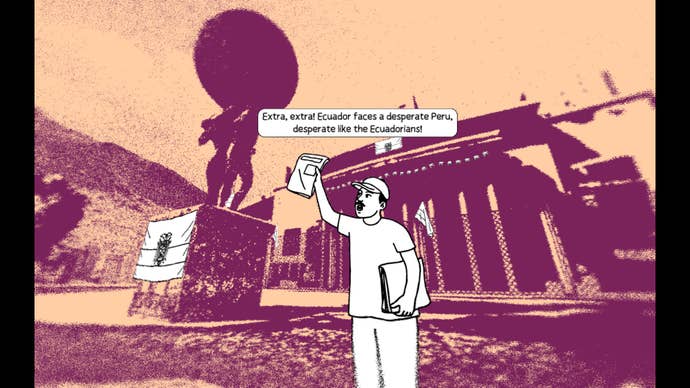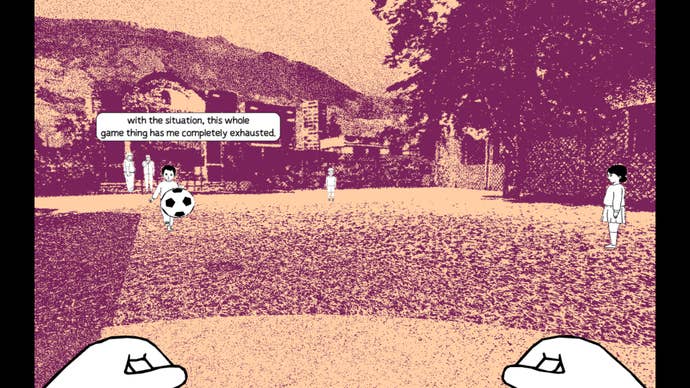Despelote should feel idiosyncratic. His hero, set in Ecuador during the historic qualifying campaign of the World Cup in the country, her hero is a half -remembered version of the main game developer. However, there is nothing special about it. Despelote is such real and personal that it hits universal truths.
This helps that despelote is a game about football, sport that goes beyond borders and woven into the tissue of everyday life. Julian is eight years ancient and we experience his life at home and school, at family weddings and later teenage events. There is elegant quality in the bleeding of these moments, presented in the first people, as if you were passing through ancient photos printed on colorful paper, low-cost ink blurred lens over the hero’s memories.
When you do not get into the scenes, as if a dream begins, you enter them because your mother led you there, her hand around the wrist when the trail is back. There is a lack of an agency in Deselote, which will be known to anyone who remembers being a child, and every freedom that always comes through a football lens. You spend the school to have kickabout with friends, the right continued and hooves with a satisfactory weight. You play during a family meeting, kicking the balloon – and really in every situation, kicking everything that is available. You can hear the conversation around you all the time.
Julian never participates in these conversations, but they eavesdrop, come from adult talking during car trips or football matches Tino Tini 99, game games and tribute to the Football Dino Dini from 1994. Ecuadoric qualifying matches that offer a game for a madness device and its clear story. You throw insight into the moments of matches on television through the windows of the store or on the radio. The point is that football is everywhere, reported, but you only have a child’s window for this world.

Exceptions are brief moments, between chapters when Voiceofer offers the context of what the qualifying matches for Ecuador – a nation that in 2001 was economical riots and which never qualified for the World Cup. The same LEKTOVER breaks the fourth wall sometimes, offering the context about the creation of the game. Despelote is autobiographical without vocabulary, and its goal is to capture the sense of childhood of the designer more than literal details.
Despelote will take you just over two hours, which means that I are reluctant to offer many literal details in this review.
If the despension runs in football and football fandom, he is also running in the language of video games. This is obvious when you play Tino Tiny, which offers the most attractive moments of despellery, but also in the master employ of the medium to tell a linear story. In some respects, Despelote is more the successor to the Smash Cut of Thirty Flight of Loving edition than the latest work of Blendo Games. In other respects it is completely own, certain and fully created, drawing from everything, from comics to cinéma vérité, but crossing them to tell the story in a way that only video games can.

Maybe I am so in love by Despolete, because football was a regular companion in my life. My childhood memories have been inseparable from hundreds of hours spent playing in reasonable football or from kickabout in a park where my friends and I presented our own colorful commentary and we adopted the roles of Regens from our championship campaigns. When I dreamed, I also dreamed of football. I think that if you have never had such a relationship with sport, despellery can support you explain what it means to the people who do. I think that in particular it can be an antidote for British football culture often defined solely by Megabucks Premier League, with millionaires of players and the resources of restrained states.
However, even if the despension appeals only to those of us who already have football in our hearts, this is not a return to it. In a medium often dominated by the Pastiche and Ya Fiction Tropes species, what a penny to have a video game that seems true.

